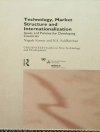This compilation presents some of the latest advancements in economics research. Chapter One evaluates the impact of public policies, such as those regarding infrastructure and education, on a country’s economic performance. Chapter Two deals with the issues of utilization of sludge from wastewater treatment in agriculture as a socio-economic and environmental problem in the European Union and Bulgaria. Chapter Three investigates the impact of cognitive and non-cognitive skills on the quality of a task-specific outcome by conducting an experiment on a popular crowdsourcing platform and finds that the performance of workers depends on cognitive skills, personality traits and work effort. Chapter Four explores how trade show visitors‘ objectives impact their visual attention to trade show booths and booth visit likelihood. Chapter Five summarizes some trends in R&D expenditures in post-socialist countries in the course of market transformation on the basis of comparative statistical analysis of relative R&D effort. Chapter Six aims to establish the best tourism human resources development practices utilized by Egypt as one of the countries leading the tourism industry in Africa. Chapter Seven outlines the major aspects of the shift in the IMF stance on international capital mobility from the perspective of finding the right balance between freedom, regulation, and control. Chapter Eight focuses on stochastic control of exchange rates via discretionary central bank intervention. Finally, Chapter Nine investigates the quantitative importance of investment frictions for the propagation of cyclical fluctuations in Bulgaria.
Albert Tavidze
Progress in Economics Research. Volume 48 [PDF ebook]
Progress in Economics Research. Volume 48 [PDF ebook]
Dieses Ebook kaufen – und ein weitere GRATIS erhalten!
Sprache Englisch ● Format PDF ● Seiten 245 ● ISBN 9781685073312 ● Herausgeber Albert Tavidze ● Verlag Nova Science Publishers, Inc. ● Erscheinungsjahr 2021 ● herunterladbar 3 mal ● Währung EUR ● ID 8201871 ● Kopierschutz Adobe DRM
erfordert DRM-fähige Lesetechnologie












